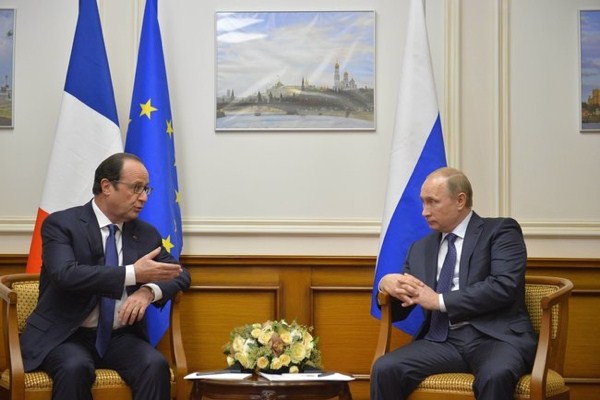Following a long-standing Gaullist tradition, and driven by romantic memories of their alliance from the two world wars, France has been careful to maintain good relations with Russia while remaining a member of NATO. But the Ukraine crisis has led to a significant change in France’s Russia policy, as evidenced by the saga over the sale to Russia of two Mistral-class warships.
That deal was arranged in 2011 by President Francois Hollande’s predecessor, Nicolas Sarkozy. Encouraged by his prime minister, Francois Fillon, a traditional Gaullist, and his defense minister, Herve Morin, who was keen on ensuring jobs for the beleaguered French naval shipyards, Sarkozy bet on Russia’s ability to reform and become a true partner of the Atlantic alliance and the European Union. Russia was also seen as a potentially significant new market for the French defense industry, free from U.S. competition.
That lucrative deal notwithstanding, the main factors determining France’s Russia policy have always been more political than commercial. France’s trade with Russia is relatively limited compared to Germany’s, for example. Energy is one of the key fields of bilateral industrial cooperation, but unlike some of its neighbors, France is not dependent on Russian gas. However, on the question of the Mistral, the economic stakes were not trivial. And that presented a dilemma for Hollande when he took office.

